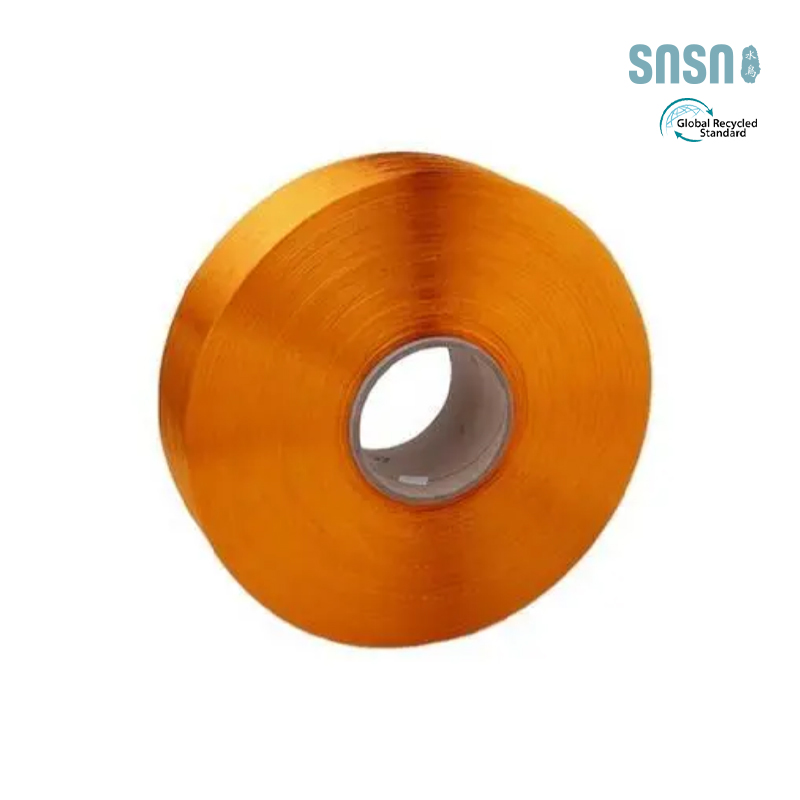Recycled POY (Partially Oriented Yarn) is a sustainable alternative to traditional polyester yarn, made from recycled PET bottles or post-industrial waste. It offers environmental benefits while maintaining performance in textile applications. This article explores its manufacturing, advantages, and key uses.
What Is Recycled POY?
Recycled POY is a type of polyester yarn made from recycled materials, primarily PET bottles or industrial polyester waste. It undergoes a similar manufacturing process as virgin POY but with a reduced carbon footprint.
How Is Recycled POY Manufactured?
The production process involves several steps:
- Collection & Sorting: PET bottles or polyester waste are collected and sorted by color.
- Cleaning & Shredding: Materials are cleaned, shredded into flakes, and purified.
- Melting & Extrusion: Flakes are melted and extruded into chips.
- Spinning: Chips are spun into POY filaments using high-speed winding.
- Drawing & Texturing: Yarn is drawn to align polymer chains for strength.
Recycled POY vs Virgin POY: Key Differences
| Property | Recycled POY | Virgin POY |
|---|---|---|
| Raw Material | Recycled PET/post-industrial waste | Petroleum-based PTA & MEG |
| Carbon Footprint | 30-50% lower | Higher |
| Energy Consumption | Reduced by 40-60% | Higher |
| Tensile Strength | Slightly lower (5-10%) | Standard |
| Cost | Competitive | Market-dependent |
Benefits of Recycled POY
- Environmental Sustainability: Reduces landfill waste and plastic pollution.
- Energy Efficiency: Requires less energy than virgin polyester production.
- Resource Conservation: Decreases reliance on petroleum.
- Certifications: Eligible for GRS (Global Recycled Standard) or RCS (Recycled Claim Standard).
- Market Demand: Aligns with eco-conscious consumer preferences.
Applications of Recycled POY
Recycled POY is versatile and used in:
| Industry | Application |
|---|---|
| Textiles | Apparel, sportswear, home textiles |
| Automotive | Upholstery, seat belts, carpets |
| Packaging | Non-woven bags, flexible packaging |
| Industrial | Conveyor belts, ropes, geotextiles |
Technical Specifications of Recycled POY
| Parameter | Typical Range |
|---|---|
| Denier | 50D - 300D |
| Filament Count | 36, 48, 72, 144 |
| Tenacity | 2.5-4.0 g/denier |
| Elongation | 20-60% |
| Moisture Regain | 0.4% |
Challenges in Recycled POY Production
- Quality Consistency: Variations in recycled feedstock can affect uniformity.
- Color Limitations: Often limited to dope-dyed shades due to original material colors.
- Processing Adjustments: May require modified spinning parameters vs. virgin POY.
Future Trends in Recycled POY
The market is evolving with:
- Chemical recycling advancements for higher-quality output.
- Increased adoption by major fashion brands.
- Government regulations promoting recycled content.
Conclusion
Recycled POY offers a sustainable alternative for polyester yarn applications, balancing performance with environmental responsibility. As technology improves, its quality and market share are expected to grow significantly.

 English
English عربى
عربى Türk
Türk Español
Español




















